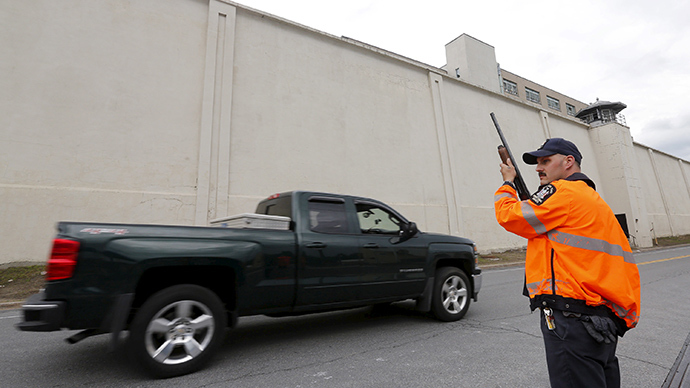Supreme Court strikes down key 'violent felony' provision of re-offender law

The Supreme Court struck down a key provision of a law that lengthened prison sentences for criminals caught with an illegal firearm. The ruling could change the lives of thousands of people serving long sentences in federal prison.
Six of the justices, led by conservative Antonin Scalia, ruled the provision in the re-offender law was "unconstitutionally vague" and violated due process. Another two justices felt that the provision, which concerned violent felony convictions, was constitutional, but that owning a sawed-off shotgun shouldn't count against an individual as a violent offense.
The final vote was 8-1 in favor of striking down the provision, which was found in the Armed Career Criminal Act of 1984.
“Nine years’ experience trying to derive meaning from the residual clause convinces us that we have embarked upon a failed enterprise. Each of the uncertainties in the residual clause may be tolerable in isolation, but ‘their sum makes a task for us which at best could be only guesswork,’” wrote Justice Scalia.
“Invoking so shapeless a provision to condemn someone to prison for 15 years to life does not comport with the Constitution’s guarantee of due process.”
Scalia writes for court in Johnson case that sawed-off shotgun doesn't meet statutory definition of inherent dangerous felony #SCOTUS
— Frank Reilly (@frankreilly) June 26, 2015
The case, Johnson v. United States, concerned the 1984 law that mandated a sentencing term of 15 years to life for firearms possession by people with either three convictions of “serious drug offenses” or “violent felonies.” How a court decided what counted as a “violent felony” was an open-ended question, and allowed prosecutors to enhance sentences that involved “conduct that presents a serious potential risk of physical injury to another,” even if the crime itself didn’t actually involve violence.
The case before the justices concerned Samuel James Johnson, a
white nationalist with a group called Aryan Liberation. He was
convicted of gun crimes and sentenced to 15 years because the
judge counted a past conviction for the possession of a sawed-off
shotgun as one of the "violent felonies" on Johnson's
record.
READ MORE: Mississippi private prisons hold inmates longer, without reducing crime - study
The abuse of the provision has been seen in other cases where prosecutors have argued that drunk driving, attempted burglary and failing to report for incarceration all count as “violent.”
Justices Anthony Kennedy and Clarence Thomas agreed only on the outcome, though, saying they would find that Johnson's conviction for possession of a sawed-off shotgun does not qualify as a felony under the law. They did not find the actual provision itself to be the problem.
Justice Samuel Alito was the lone dissenter. He said the language of the law was clear enough and noted that it's similar to dozens of other state and federal laws.
Congress has the chance to either update the law with more specific language or to operate under the more limited version of the law.
Federal prosecutors, meanwhile, will need to sort through how many current inmates could be potentially released early and how many of the approximately 7,000 people serving enhanced sentences under the act will need to be re-sentenced.
The Armed Career Criminal Act increased sentences, on average, from five to 15 years. More than half of federal firearms offenders sentenced under the guidelines last year were black.












